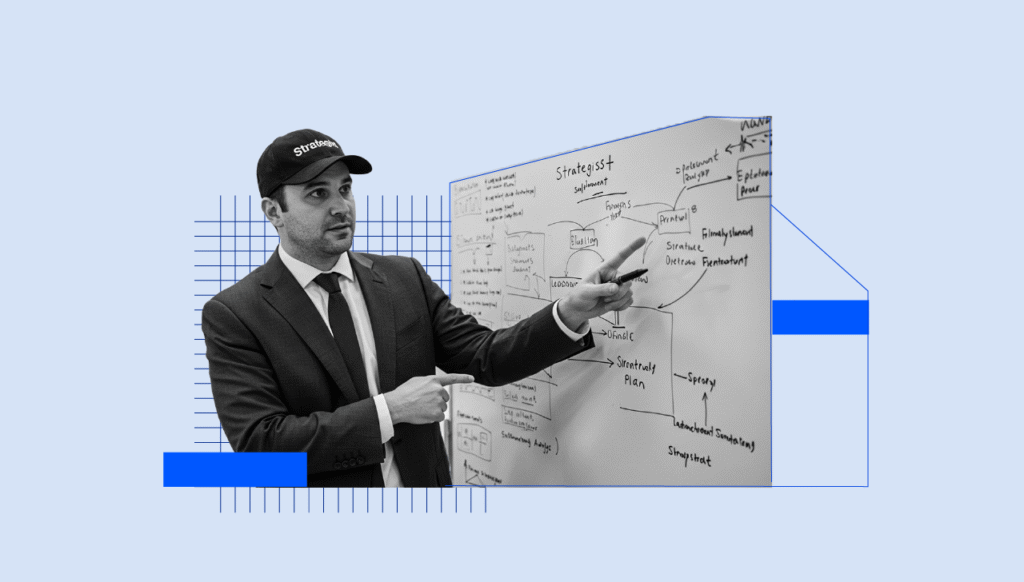We’ll tell you how Growie drives data-driven marketing strategy, but first, the facts. In today’s dynamic marketing landscape, relying on intuition is no longer sufficient. According to Invesp, only 39.6% of firms have a documented Conversion Rate Optimization (CRO) strategy, leaving a significant majority navigating without a clear roadmap. This lack of structure often leads to missed opportunities and inefficient campaigns.
Historically, the concept of CRO emerged around the early 2000s as marketers began shifting from vanity metrics (like page views and impressions) to meaningful actions (like signups and purchases). It became evident that traffic alone doesn’t pay the bills; conversions do. The LIFT Model by WiderFunnel, which evaluates landing pages based on clarity, relevance, urgency, and distraction, became a game-changer.
Even giants like Amazon and Booking.com owe much of their success to relentless A/B testing and behavioral data, with Amazon reportedly running over 1,000 tests per month to optimize user experience. If the greats of the industry understand the relevance of data-driven marketing strategy, It’s only wise to look in that direction too.
What does LIFT stand for?
The LIFT Model, short for Landing Page Influence Function for Tests was developed by Chris Goward at WiderFunnel as a strategic framework for conversion rate optimization. By evaluating six key factors that influence a user’s decision to convert, the model has helped brands achieve conversion lifts ranging from a solid 10% to a staggering 277%. In the world of landing pages and funnel performance, ongoing testing and iterative improvements aren’t optional; they’re essential. With the LIFT Model, you gain a structured lens to spot what’s working, what’s not, and where to fine-tune for maximum impact.
At its core, the LIFT Model consists of six conversion factors that affect the value proposition, the central element that drives conversion:
- Value Proposition (Core)
The primary reason a customer should buy or convert. It answers the key question: “Why should I choose you over competitors?” All other factors either enhance or diminish this value. - Clarity (Enhancing Factor)
Is the message clear and easy to understand at a glance? A confusing layout or vague offer destroys conversions. - Relevance (Enhancing Factor)
Does the page match what the visitor expected when they clicked the ad/link? Mismatched messaging leads to drop-offs. - Urgency (Enhancing Factor)
Does the page create a sense of time sensitivity or limited opportunity? Offers without urgency often result in procrastination. - Anxiety (Inhibiting Factor)
Are there any elements causing doubt or mistrust (e.g., security concerns, unclear return policies, low-quality visuals)? - Distraction (Inhibiting Factor)
Are there unnecessary links, images, or elements that pull the visitor away from the CTA? Fewer distractions = more focus.
How effective is this principle?
The LIFT Model isn’t just theoretical, it has helped brands generate millions of dollars in additional revenue by structuring optimization around persuasive psychology. Here’s what makes it so effective:
- A/B Testing structured around LIFT: WiderFunnel, using the LIFT Model, ran thousands of experiments and documented results showing up to 200%+ increases in conversion rates for clients.
- Case Study – SAP: SAP, a global tech giant, partnered with WiderFunnel and used the LIFT Model to optimize its landing pages. Through structured testing and messaging clarity, SAP saw a 32.5% increase in lead form submissions.
- Case Study – 1-800-GOT-JUNK?: This junk removal company used the model to redesign landing pages, increasing conversions by 47%, simply by improving clarity and removing distractions.
- Case Study – Magento (Adobe Commerce): By focusing on the anxiety and urgency components of the LIFT Model, Magento improved demo request conversions by 41%.
Modern tools like GrowthApp now give marketers deep behavioral insights, heatmaps, and even AI-based optimization recommendations. Yet, many brands still treat landing pages as static brochures rather than iterative, learning assets. According to Econsultancy, companies with a structured CRO program are twice as likely to see large increases in sales. And as AI-driven personalization becomes the norm, not the exception, the future clearly favors brands that move from assumptions to analytics, from decoration to direction.
The truth? In a landscape ruled by relevance, the most optimized experience wins, every time. Marketing today is as much about insight as it is about execution. Strategies built on guesswork are expensive lessons waiting to happen. That’s what Growie is built to prevent, armed with machine learning models tuned to identify the gaps most marketers overlook.
Where your usual stack shows “what happened,” Growie leans into why it happened and more importantly, what to fix. From user behavior mapping to intent analysis, Growie filters the noise and gives you action-ready insights to up your data-driven marketing strategy.
The importance of structured optimization
A structured approach to CRO is crucial for sustained growth. Econsultancy reports that companies with a structured optimization strategy are more likely to see significant improvements in their primary success metrics. Growie facilitates this by continuously analyzing your funnel, identifying leaks, and providing targeted recommendations to patch them.
How Growie steps in.
A 2023 study by Invesp revealed that 68% of companies lack a structured conversion rate optimization strategy. Growth often stalls not because of poor products, but poor funnel hygiene. Growie scans your funnel like a forensic analyst, catching leaks and drop-offs that silently drain your marketing spend. It flags friction points and offers real-time recommendations on copy, layout, CTA positioning, and navigation flow ensuring your campaigns don’t just reach audiences, but move them.
It gives adaptive insights in its data-driven marketing strategy, not just static reports
- What sets Growie apart isn’t just its ability to highlight issues, it adapts as your campaigns evolve. Think of it as an always-on growth advisor, refining your strategies with each user interaction. Whether you’re testing a new headline, shifting your value proposition, or refining audience targeting, Growie feeds back actionable insights so your strategy isn’t left hanging mid air.
- Marketing campaigns are not static; they evolve based on user feedback and market trends. Growie adapts to these changes, offering insights that evolve with your campaigns. Whether you’re testing a new headline or refining your value proposition, Growie ensures your strategy remains effective and aligned with user expectations.
- While data is abundant, its interpretation and timely application are what drive growth. Growie translates complex analytics into straightforward, actionable strategies, enabling you to make informed decisions swiftly. This precision ensures that your marketing efforts are not just data-informed but data-driven.
Growth, backed by data and delivered with precision
Every marketer knows: hunches are dangerous, data is king. As much as we emphasize data-driven marketing strategy, data alone won’t unlock growth, interpretation and application as well as timing will. Growie translates hard-to-read analytics into plain-speak suggestions, allowing you to pivot and optimize without waiting for the post-mortem. Whether you’re chasing higher engagement, lower CAC, or better LTV, Growie aligns your strategy to hit the mark.
But all these are merely a tip of the massive impacts of Gowies’ smart segmentation that furnishes your marketing funnel for optimal conversions. As a CRO Manager and team player, Growie:
Brings high-level CRO strategies within everyone’s reach: Small to mid-sized businesses (SMBs) that can’t afford full-time CRO experts gain access to enterprise-grade optimization, leveling the competitive playing field. This means a solo entrepreneur or lean startup can now make conversion-boosting decisions like a Fortune 500 company.
Reduces cognitive load and decision fatigue: Instead of wading through dashboards and conflicting metrics, the CRO Manager delivers just what matters, preventing “analysis paralysis.” This keeps marketing teams focused on execution rather than drowning in endless analytics rabbit holes.
Builds a culture of optimization within teams: By introducing structured, regular insights every five hours, it subtly trains teams to think in terms of experiments, iteration, and improvement. Over time, this shifts company culture from guesswork to data-driven growth, even if no one is formally trained in CRO
With Growie, growth isn’t luck, it’s systematic
In a landscape where algorithms change daily and user preferences evolve overnight, data-driven marketing strategy is not a may-be. It’s imperative. Reactive strategies are obsolete. Your conversion rate growth requires insight and Growie arms you with predictive insights, proactive fixes, and precision tweaks that collectively drive measurable, sustainable growth. Forget wishful marketing with Growie, you’ll finally market with certainty.



